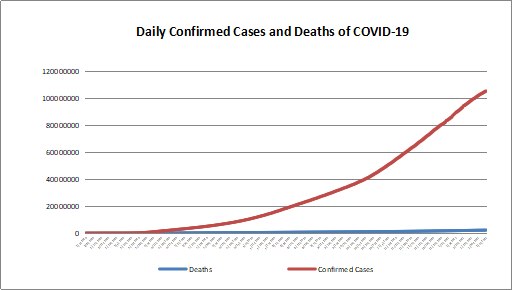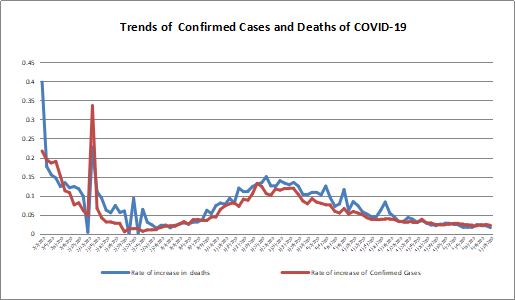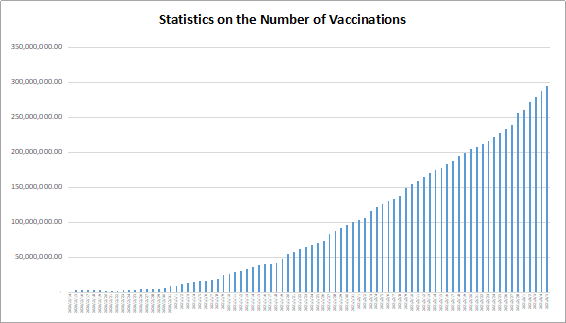Heads of International Organizations Issue Joint Statement Calling for Urgent Action to Address Global Food Security Crisis
Time:2022/07/28 BJT
1. Key concerns
On 15 July 2022, the Director-General of the Food and Agriculture Organization (FAO) of the United Nations, the Managing Director of the International Monetary Fund, the President of the World Bank Group, the Executive Director of the World Food Programme (WFP) and the Director-General of the World Trade Organization issued a joint statement calling for urgent action to address the global food security crisis.
The statement highlights that the raging COVID-19 pandemic, disruptions in international supply chains and the conflict in Ukraine have severely disrupted the normal functioning of food, fuel and fertilizer markets, with food security under serious threat. According to the WFP, the number of severely food-insecure people in 82 countries increased to 345 million by June 2022, and some 25 countries have responded to rising food prices by adopting export restrictions. Accordingly, the joint statement noted that action is needed in the following four key areas to advance towards the Sustainable Development Goals and avoid further setbacks.
Firstly, providing immediate support to the vulnerable. Rapidly strengthen the safety and security of vulnerable households at the national level and ensure that the World Food Programme has sufficient resources to prioritize services for those most in need. As energy and food subsidies are expensive and inefficient, the option of targeted cash subsidies to vulnerable groups is recommended. The coverage of effective social protection systems should be expanded. Technology should be used to create robust operational targets and efficient registration, delivery and payment systems.
Secondly, facilitating trade and the international supply of food. In the short term, release stocks, as appropriate and in accordance with World Trade Organization rules, and seek through diplomatic means to withdraw grains and fertilizers currently blocked in Ukraine, to strongly enhance the availability and affordability of food supplies. According to the WTO Ministerial Declaration on the Emergency Response to Food Security, promoting trade and improving the functioning of global food and agricultural markets are key to addressing food security. Experience has shown that the imposition of global trade restrictions can directly lead to higher food prices, so export restrictions need to be removed and more flexible inspection and licensing procedures introduced to minimize the chance of supply disruptions and price reductions.
Thirdly, promoting production. Encouraging farmers and fishermen in developing and developed countries to engage in sustainable food production and improve supply chain building is needed. The private sector, as a major player in the market, should provide farmers with affordable access to production materials such as fertilizers and seeds, and provide working capital for competitive producers. FAO, the World Bank and other agencies will promote more efficient fertilizer use through rapid deployment of soil maps, extension services and fine farming techniques to provide producers with the necessary expertise.
Fourth, investing in climate-resilient agriculture. Supporting resilient investments in agricultural capacity and providing support for small farms, food systems and climate-resilient technology development are essential to ensure stable production for years to come. Increasing access and access to storage facilities, cooling facilities, banking infrastructure and insurance infrastructure in areas such as food safety norms, standard-setting efforts and value chain infrastructure is important to reduce inequality of opportunity.
WHO’s Third Report Reviews on Health and Migration Underscores How the Implementation of Inclusive Immunization Plans Helps Refugees and Migrants to Break Down Health Care Access Barriers
2. Briefing on COVID-19 Pandemic(Issue No.201)
According to WHO statistics, calculated numbers of confirmed COVID-19 cases and deaths reached 559,469,605 and 6,361,157 by 18 July, 2022. Italy, France, Japan, Germany and the United States are the five countries (regions) with the highest number of new confirmed cases in the past seven days, and Italy, France, Japan, Germany and the United States are the five countries (regions) with the highest number of new deaths in the past seven days.


https://covid19.who.int/
The World Health Organization (WHO) releases its third report of WHO Global Evidence Review on Health and Migration series, noting the barriers refugees and migrants may face in accessing the COVID-19 vaccine and highlighting the importance of implementing inclusive immunization plans. According to the University of Oxford's online research website Our World In Data, the total number of doses of COVID-19 vaccine administered worldwide had reached 12,226,164,389 by 18 July, 2022. The report published by the WHO states that the procedures for including refugees and migrants in vaccine national plans, and the existing policies for their implementation, vary considerably between countries and regions around the world, and that most countries do not have clear policies on the right of refugees and migrants to be vaccinated, resulting in refugees and migrants facing multiple barriers to vaccination, such as policy barriers; individual-level barriers, including trust, culture, religion, social norms and beliefs; logistic barriers, such as procedures for vaccination; information and communication barriers; and financial barriers. Therefore, WHO has prioritized the provision of vaccinations for refugees and migrants and provides three recommendations in the report: firstly, ensure universal and equitable access to vaccinations for all refugees and migrants through inclusive immunization policies; secondly, strengthen health systems to provide catch-up vaccinations for mobile populations and ensure adequate resources for these activities by increasing national vaccination capacity; and thirdly, strengthen data collection by providing financial support for national data collection and analysis to monitor gaps in immunization coverage and capacity of immunization services for refugee and migrant populations.

https://ourworldindata.org/covid-vaccinations
In terms of national (regional) responses to COVID-19, recent national (regional) measures have varied, with some countries (regions) gradually relaxing existing outbreak control measures at various levels, while others having taken measures to promote COVID-19 vaccination. In the Americas, the Washington Post reported on 18 July that the United States Centers for Disease Control and Prevention announced that the COVID-19 Program for Cruise Ships is no longer in effect and that it will no longer issue guidance for cruise ships on the mitigation and management of COVID-19. Previously, the agency released the guidance for cruise ships earlier in the year to allow the public to monitor cruise ship operations for the need to prevent and control the COVID-19 outbreak. In Europe, the Italian Minister of Health said that the European Medicines Agency has approved a fourth dose of the vaccine for people over 60 years of age, either after the last dose or four months of recovery, and that Italy will immediately adjust the programme by issuing specific instructions to inform organizations to administer the fourth dose of COVID-19 vaccine to people over 60. In France, the level of infection has fallen for several days since 12 July, from 130,000 new cases on 11 July to less than 120,000 cases per day now, according to the French newspaper La Croix. In Asia, the Japanese government has decided to temporarily set up free COVID-19 testing stations at stations and airports during the summer holidays due to the new wave of COVID-19 outbreak, Asahi TV reported on 13 July. It is reported that there are currently 13,000 free COVID-19 testing stations throughout Japan. However, due to the intensification of the new round of infection and the increase in the number of people returning home and travelling during holidays, the Japanese government has decided to set up 100 temporary COVID-19 testing stations at stations, airports, service areas, etc. South Korea has expanded the group of people who can receive the fourth dose of the COVID-19 vaccine to include people over 50 years of age, people with chronic diseases over 18 years of age, people with disabilities and street sleepers from 18 July.


